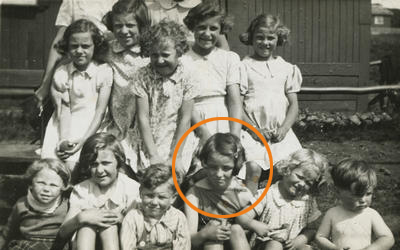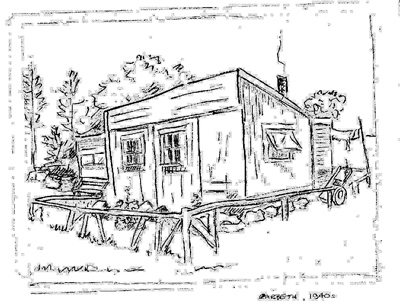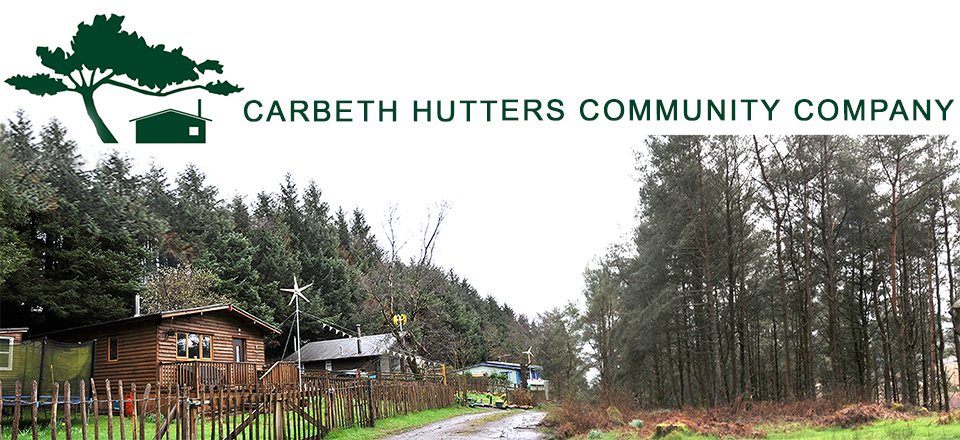Marlene's Story

I was almost seven when World War 2 broke out, and when the threat of air raids increased we moved to one of the holiday huts at Carbeth. Only thirteen miles from the centre of Glasgow, in those days well out in the country.
All the huts had families from Glasgow and Clydebank and there were loads of children to play with. The younger ones went to Craigton Village School, about two miles away and the older ones to Balfron High.
As I recall there were three classrooms and teachers, but we came together for a sort of assembly. There was a bit of the ‘them and us’ syndrome, but not too much, perhaps a tendency to blame ‘the evacuees’ for any misdeeds. I think we outnumbered the locals which probably worked to our advantage.
My personal problem was having a ‘German’ name – Marlene. Among many snide remarks I was told ‘You must be a German spy’, but nobody was really vicious.
I remember a journey on the bus from Killermont Street Station (now Buchanan Street). It was dark and we had just left when a raid started and all the interior lights were put off. The bus headlights were already dimmed. Going out Maryhill Road I peeked round the edge of the window blind and saw a church in flames.
When we arrived at the Carbeth Inn and got off the bus there were planes flying overhead and shrapnel falling all around us as we scuttled up the hill. When I see it now it’s just a little slope, but it seemed so big at the time!
At Carbeth we were below the bombers flight path to Clydebank. During the raid the flames could be seen over the hills. I knelt at the window to watch. The whole sky seemed to be ablaze and you could hear the distant dull thud of the explosions.
The seriousness of things was brought home when refugees from Clydebank started streaming along the road at the foot of the hill. Just like you see in a war movie, carrying a few possessions, or pushing carts or prams with all they could salvage.
The Salvation Army parked a soup kitchen behind the Carbeth Inn. ‘Hutters ’ went down and offered what assistance they could, perhaps a bed for a night or two. Many a time our hut would have total strangers sleeping on the floor. A recently married couple chose the privacy of the lean-to dry lavatory at the back of the hut.
As children we were not generally aware of the full horror, but one incident stands out. A man in a neighbouring hut was on duty as a warden in Clydebank and on return home broke down completely because of the appalling scenes he had witnessed, having to dig children’s bodies from the rubble. The hushed conversations between the adults had a sobering impact on all of us. Any feelings of excitement were replaced by an earnest longing for it to be all over.
I was very fortunate in both my experiences as an ‘unofficial’ evacuee, the first being in a very familiar environment and Carbeth being a ready-made community of people.
This sketch shows one of the many holiday huts at Carbeth. It was made by one of a pair of young lads who stayed overnight.

